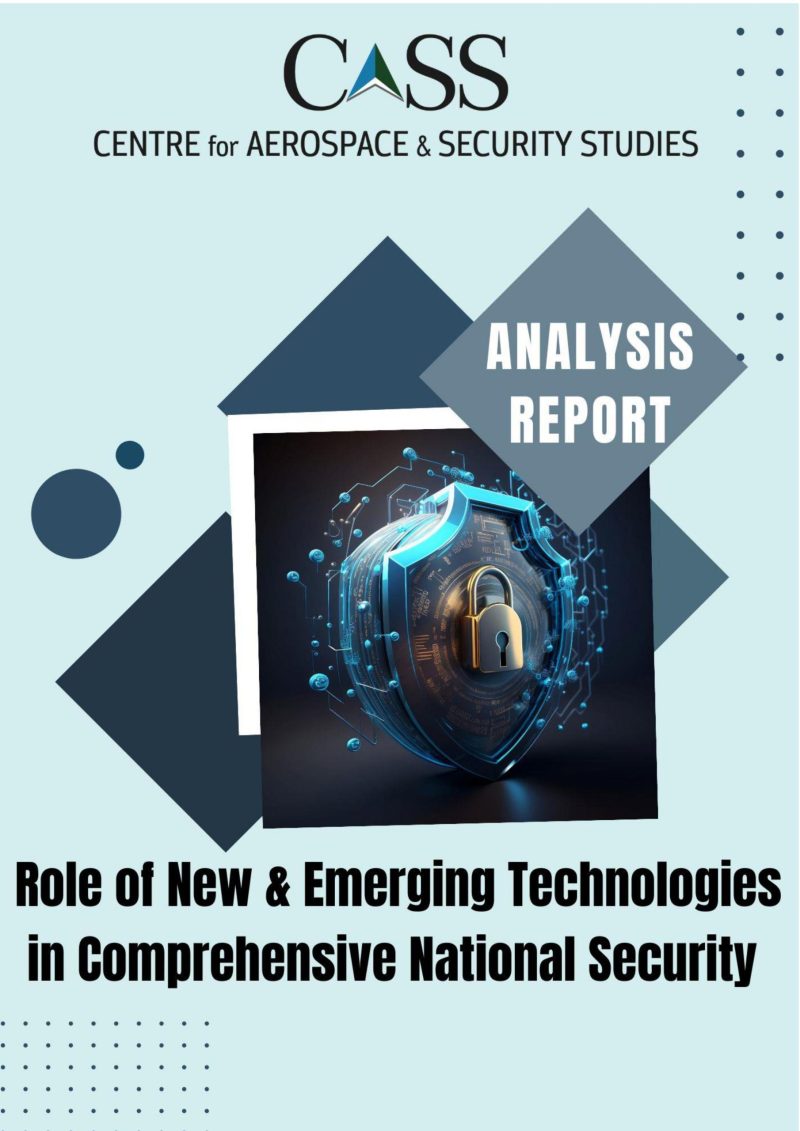The concept of ‘Comprehensive National Security’, expands the traditional view of national security to include internal and external affairs of the state and society. It encompasses both traditional military security and non-traditional dimensions of human security. Pakistan’s first formally declared ‘National Security Policy’ is based on this concept, emphasising a whole-of-nation approach to develop a cohesive and responsive security policy.
Emerging technologies such as Internet of Things (IoT), Artificial Intelligence (AI), 3D printing, Quantum Computing, 5G, block chain, autonomous systems, robotics, hypersonic missiles, and biotechnology are rapidly transforming societies, economies, as well as warfighting capabilities leading to a shift in global power centres. These technologies have implications for both human security and state security, requiring a futuristic approach.
Technological advancements driven by the digital revolution are revolutionising various fields by gathering, analysing and utilising vast amounts of data. They offer numerous social and economic benefits, enhancing productivity in sectors such as health, energy, finance, education, agriculture, and environment. In the realm of traditional security, these advancements lead to the development of new weapons, integration of existing systems, and changes in operational concepts and organisations. Acquiring these technologies will impact power balances and create challenges at national, regional, and global levels.
In this regard, on 8 June 2023, the Centre for Aerospace & Security Studies (CASS) organised a seminar on the subject of ‘Role of New & Emerging Technologies in Comprehensive National Security.’ The aim of the seminar was to examine the formulation of policies and implementation strategies for investing in the development of newer technologies to achieve Pakistan’s Comprehensive National Security goals.

Share this article

Conflicted Calculations: When Strategic Decisions Aren’t Strategic at All
Perhaps the most consequential aspect of any military campaign or national policy is strategic planning. Unfortunately, these decisions are often driven by ideological and political motives rather than reason

Smuggling by Sky: The New Way Terrorists Move Supplies
Necessity is a dark cloud which tends to give birth to innovation in the turbulent arenas of contemporary conflicts. Having said that, a very low profile yet dramatic change is underway in the airspace of conflict zones, which is being used by terrorist and insurgent groups using commercial unmanned aerial vehicles (UAVs).

UNSC’s Unique Paralysis
In the recorded history of international relations, institutions rarely fail outright. Instead, they become irrelevant. Contrary to popular belief, the United Nations Security Council (UNSC) is not collapsing due to the weight of idealism or bureaucratic inertia.

